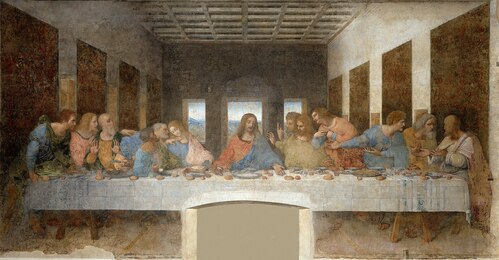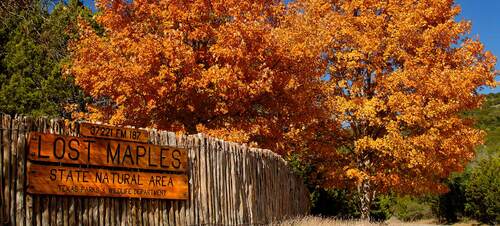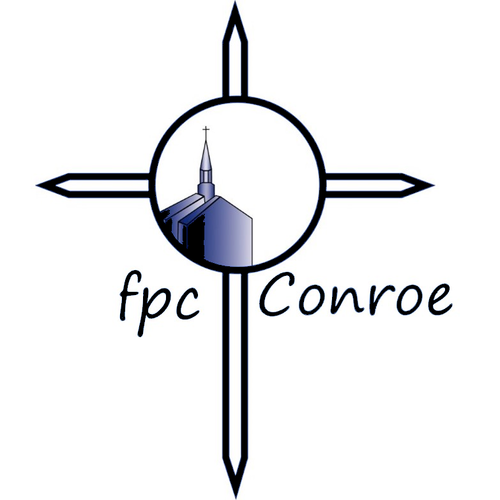
December 23, 2024
Dear FPC Family,
As you can imagine, this is a busy time of year for pastors. As such, I have not had the time to write much for this page. But for today's update I want to share my favorite Christmas poem with you. I have known about this poem for several years now and it still resonates with me as strongly today as the first time I read it. I hope it will be a blessing for you, too.
“Christmas”
By John Betjeman
The bells of waiting Advent ring,
The Tortoise stove is lit again
And lamp-oil light across the night
Has caught the streaks of winter rain
In many a stained-glass window sheen
From Crimson Lake to Hookers Green.
The holly in the windy hedge
And round the Manor House the yew
Will soon be stripped to deck the ledge,
The altar, font and arch and pew,
So that the villagers can say
'The church looks nice' on Christmas Day.
Provincial Public Houses blaze,
Corporation tramcars clang,
On lighted tenements I gaze,
Where paper decorations hang,
And bunting in the red Town Hall
Says 'Merry Christmas to you all'.
And London shops on Christmas Eve
Are strung with silver bells and flowers
As hurrying clerks the City leave
To pigeon-haunted classic towers,
And marbled clouds go scudding by
The many-steepled London sky.
And girls in slacks remember Dad,
And oafish louts remember Mum,
And sleepless children's hearts are glad.
And Christmas-morning bells say 'Come!'
Even to shining ones who dwell
Safe in the Dorchester Hotel.
And is it true,
This most tremendous tale of all,
Seen in a stained-glass window's hue,
A Baby in an ox's stall ?
The Maker of the stars and sea
Become a Child on earth for me ?
And is it true ? For if it is,
No loving fingers tying strings
Around those tissued fripperies,
The sweet and silly Christmas things,
Bath salts and inexpensive scent
And hideous tie so kindly meant,
No love that in a family dwells,
No caroling in frosty air,
Nor all the steeple-shaking bells
Can with this single Truth compare -
That God was man in Palestine
And lives today in Bread and Wine.
November 25, 2024
Dear FPC Family,
Thanksgiving is quickly approaching. By this time next week most of us will be eating leftover turkey sandwiches and mashed potatoes that always seem to be cold in the middle no matter how long you leave them in the microwave.
Many families have their own Thanksgiving traditions. In my family we always watch the Dallas Cowboys… that is until the inevitable tryptophan induced coma hits us in the third quarter (although with as bad as Dallas has been this year I’ll probably fall asleep before halftime).
Football, food, and family (in no particular order) are among my favorite things about Thanksgiving. That being said, sometimes Thanksgiving can be a real pain.
Not only is there a lot of cooking and cleaning involved, but you are also trusting that everyone in the family can stay on their best behavior for the entire duration of the festivities.
It seems that almost every family has that one black sheep who wants to talk politics at the dinner table or lecture you about UFOs while you’re trying to savor a slice pumpkin pie in peace.
The truth is, some of our families are textbook dysfunctional.
And yet, every year we gather. Every 4th Thursday in November, we labor to be a family.
In the Greek language the word for Thanksgiving is eucharistia, which is the root word for Eucharist (the fancy name for Communion or Last Supper). Before we eat from the bread and drink from the cup, we remember the mighty acts of God in Jesus Christ and we offer thanks for the salvation and redemption won for us in Christ. Then, after the words of institution are offered by the minister, all are welcome to come to the and participate in this sacred meal of thankfulness.
All are invited. All are welcome. It doesn’t matter if you’re pious or nominally religious, if you’re full of faith or running on empty, if you’re a “good” person or if you’re a real scoundrel, or if you’re perfectly functional or chaotically dysfunctional; all are given a place at the table and an equal share.
Now that sounds like the type of family I want to belong to.
Happy Thanksgiving!
In Christ,
Seth Saathoff

November 6, 2024
Dear FPC Family,
I write this in the early morning hours of the day after the 2024 election.
While we wait for every ballot to be counted and every race to be decided, the Presidential election appears to have a yielded decisive winner.
My sermon text this Sunday is from one of Paul’s letters to the Corinthians. Perhaps this is providence, as we are reminded that, much like our society, the church in Corinth was a deeply fragmented and divided community. Chief among these divisions was a division over leadership; some members of the church claimed to be followers of Paul, others claimed to follow Apollos, and others followers of Peter. While we don’t know precisely what each of these groups believed, we know there were significant differences and disagreements among them. This division threatened to destroy the entire church community, which is why Paul felt compelled to write to them and remind them that Christ was not divided, and as the body of Christ, we dishonor Christ and ourselves by dividing the church against itself. This, of course, does not mean we all have to think, act, and even vote precisely the same way, but we must always remember that our unity in Christ trumps any and all divisions.
This is easier said than done, but as a friend of mine once taught me, anything worth doing in life is going to be hard.
Therefore, regardless of your party affiliation or how you voted, as the Church of Jesus Christ and in the unity of Christ’s body, I urge you all, brothers and sisters, to pray for the President-Elect, Vice President-Elect, and all others elected to office on November 5. I also urge you to pray for the outgoing Vice President, President, and all others who will be leaving their office. And I urge you, in the name of Christ, to pray for our nation, that all its people would thrive, have their needs met, and have equal opportunities to succeed. Pray that the young will be educated, nurtured, and given a future. Pray that the elderly will be given security and dignity as they age. Pray that those who work will be able to provide for themselves and their families. Pray that all our nation’s people would rediscover a love of country and neighbor (even the neighbors we disagree with). And above all, pray that all people on earth would be united by the love of God in the body of Christ and that the Church would be an embassy of the Kingdom of God here on earth, proclaiming the grace of our Lord Jesus Christ, the forgiveness of sins, and the reconciliation of the world in Christ Jesus. Amen!
In Christ,
Seth Saathoff

Last Supper by Leonardo da Vinci
October 2, 2024
Dear FPC Family,
This may come as a surprise to some, but I have not always been a presbyterian. Before I found the light of Presbyterianism in my teenage years, I sojourned through the Baptist tradition for a time.
I remember attending a Baptist church summer camp at Baylor University when I was in middle school. Besides the cafeteria's famous chocolate milk (ice cold and sinfully delicious), the thing I remember most about that camp was the emphasis on a personal relationship with Jesus. As an 11-year-old boy, I didn't exactly know what that meant, but I was told that it involved accepting Jesus as my Lord and Savior and being baptized. On the camp's final night, the preacher initiated an "altar call," where people are invited to come forward and kneel as a symbolic expression of newfound faith. Practically everyone I knew went forward. Not wanting to be left out, I came forward as well.
The following fall, I was baptized in a jacuzzi-sized baptismal font behind the church pulpit.
There was a sense of finality to it as if there was nothing left to do or accomplish. "You're in!" declared my youth pastor, implying that my salvation was secure, and I had nothing else to worry about.
Even still, I felt like something was missing. I kept trying to have a "personal relationship" with Jesus, but it never felt like I was doing it right. How would I know if I had one? Would I feel different? Would I be different? I wasn't sure, and no one at church could give me a straight answer.
Not long after my baptism, our family drifted away from the Baptist church. We were still Christians, but we didn't know where we belonged or how we would fit in.
For the next year or so, we church shopped until we were invited by my mom's best friend to attend her small, cozy Presbyterian church in Pipe Creek, Texas.
One of the first things that struck me about this church they rarely talked about a "personal relationship" with Jesus. For them, Jesus was experienced in the community. They gathered, not as individuals seeking to draw closer to God, but as a communion of the very body of Christ, living and active in the world. They emphasized corporate worship with responsive calls to worship, prayers of the people, unison prayers of confession, and sung doxologies. At the Presbyterian church it felt like I was participating in worship and not merely spectating. Not only did they baptize infants, who were unable to speak for themselves, but they turned towards the parents and the congregation and asked them to pledge to raise and nurture the child in the faith. The entire community spoke for the child when the child was unable to speak for itself. Now that's the definition of grace!
In the years since my conversation to Presbyterianism, I would like to think I have developed a personal relationship with Jesus, but I have always felt closer to God when I am in the company of fellow believers. I experience God, most intimately and powerfully, in the embodied community of the church. I am encouraged by the fact that while each of the disciples undoubtedly enjoyed a unique relationship with Jesus, they spent practically all of their time with Jesus together, traveling together, learning together, breaking bread together, making mistakes together, and finding grace together.
I’m looking forward to finding grace in our ministry here at FPC.
Together.
In Christ,
Seth Saathoff
Dear FPC Family,
This may come as a surprise to some, but I have not always been a presbyterian. Before I found the light of Presbyterianism in my teenage years, I sojourned through the Baptist tradition for a time.
I remember attending a Baptist church summer camp at Baylor University when I was in middle school. Besides the cafeteria's famous chocolate milk (ice cold and sinfully delicious), the thing I remember most about that camp was the emphasis on a personal relationship with Jesus. As an 11-year-old boy, I didn't exactly know what that meant, but I was told that it involved accepting Jesus as my Lord and Savior and being baptized. On the camp's final night, the preacher initiated an "altar call," where people are invited to come forward and kneel as a symbolic expression of newfound faith. Practically everyone I knew went forward. Not wanting to be left out, I came forward as well.
The following fall, I was baptized in a jacuzzi-sized baptismal font behind the church pulpit.
There was a sense of finality to it as if there was nothing left to do or accomplish. "You're in!" declared my youth pastor, implying that my salvation was secure, and I had nothing else to worry about.
Even still, I felt like something was missing. I kept trying to have a "personal relationship" with Jesus, but it never felt like I was doing it right. How would I know if I had one? Would I feel different? Would I be different? I wasn't sure, and no one at church could give me a straight answer.
Not long after my baptism, our family drifted away from the Baptist church. We were still Christians, but we didn't know where we belonged or how we would fit in.
For the next year or so, we church shopped until we were invited by my mom's best friend to attend her small, cozy Presbyterian church in Pipe Creek, Texas.
One of the first things that struck me about this church they rarely talked about a "personal relationship" with Jesus. For them, Jesus was experienced in the community. They gathered, not as individuals seeking to draw closer to God, but as a communion of the very body of Christ, living and active in the world. They emphasized corporate worship with responsive calls to worship, prayers of the people, unison prayers of confession, and sung doxologies. At the Presbyterian church it felt like I was participating in worship and not merely spectating. Not only did they baptize infants, who were unable to speak for themselves, but they turned towards the parents and the congregation and asked them to pledge to raise and nurture the child in the faith. The entire community spoke for the child when the child was unable to speak for itself. Now that's the definition of grace!
In the years since my conversation to Presbyterianism, I would like to think I have developed a personal relationship with Jesus, but I have always felt closer to God when I am in the company of fellow believers. I experience God, most intimately and powerfully, in the embodied community of the church. I am encouraged by the fact that while each of the disciples undoubtedly enjoyed a unique relationship with Jesus, they spent practically all of their time with Jesus together, traveling together, learning together, breaking bread together, making mistakes together, and finding grace together.
I’m looking forward to finding grace in our ministry here at FPC.
Together.
In Christ,
Seth Saathoff

Photo: Texas Parks & Wildlife
September 25, 2024
Dear FPC Family,
The autumn equinox officially began in the western hemisphere on September 22. This means that, despite the still scorching temperatures, summer is over, and we are officially in the fall season. Very soon things will begin to look and feel a little differently. The weatherman tells me to expect a cold front this week (although “cold” is a relative term). Before too long you may want to grab a light coat on the way out the door. Growing up in the Texas Hill Country I can remember visiting Lost Maples state park during the fall to witness the once fecund bigtooth maple leaves turn from green to brilliant shades of yellow, orange, and red.
Indeed, fall is a season of change. The wisdom of Ecclesiastes speaks not only of changes in the weather, but changes in the seasons of life as well.
1 There is a time for everything,
and a season for every activity under the heavens:
2 a time to be born and a time to die,
a time to plant and a time to uproot,
3 a time to kill and a time to heal,
a time to tear down and a time to build,
4 a time to weep and a time to laugh,
a time to mourn and a time to dance,
5 a time to scatter stones and a time to gather them,
a time to embrace and a time to refrain from embracing,
6 a time to search and a time to give up,
a time to keep and a time to throw away,
7 a time to tear and a time to mend,
a time to be silent and a time to speak,
8 a time to love and a time to hate,
a time for war and a time for peace. (Ecclesiastes 3:1-8).
As we enter the final few months of 2024, FPC is also entering a new season of change. In addition to welcoming me as your pastor a few weeks ago, the church is hard at work preparing for a capital campaign which will officially begin early next year. But before we get to that, we will launch our yearly stewardship campaign next month. The inspiration for the upcoming stewardship campaign is none other than Ecclesiastes 3. As there is “a season for every activity under heaven,” we will tell you why we believe this is a season of growth here at FPC and how we can all joyfully join together in this work.
While stewardship campaigns are largely considered institutional exercises born out of necessity, I see no reason why they cannot also be missional. In fact, stewardship is essential for the church to remain true to its mission. The Book of Order defines the “great ends of the church” as follows:
“the proclamation of the gospel for the salvation of humankind;
the shelter, nurture, and spiritual fellowship of the children of God;
the maintenance of divine worship;
the preservation of the truth;
the promotion of social righteousness; and
the exhibition of the Kingdom of Heaven to the world” (F-1.0304).
The Church of Jesus Christ is and always will be judged according to its fidelity to these principles. Make no mistake; this is work. It is life giving, grace filled, and joyous work, but it is demanding work, nonetheless. The old African proverb “it takes a village to raise a child” also applies to church life; it takes a church to raise a Christian. It will take all of us—all that we are and all that we can give—to help this church fulfill its mission in 2025 and beyond.
The harvest is here; now let’s get to work.
In Christ,
Seth Saathoff
Dear FPC Family,
The autumn equinox officially began in the western hemisphere on September 22. This means that, despite the still scorching temperatures, summer is over, and we are officially in the fall season. Very soon things will begin to look and feel a little differently. The weatherman tells me to expect a cold front this week (although “cold” is a relative term). Before too long you may want to grab a light coat on the way out the door. Growing up in the Texas Hill Country I can remember visiting Lost Maples state park during the fall to witness the once fecund bigtooth maple leaves turn from green to brilliant shades of yellow, orange, and red.
Indeed, fall is a season of change. The wisdom of Ecclesiastes speaks not only of changes in the weather, but changes in the seasons of life as well.
1 There is a time for everything,
and a season for every activity under the heavens:
2 a time to be born and a time to die,
a time to plant and a time to uproot,
3 a time to kill and a time to heal,
a time to tear down and a time to build,
4 a time to weep and a time to laugh,
a time to mourn and a time to dance,
5 a time to scatter stones and a time to gather them,
a time to embrace and a time to refrain from embracing,
6 a time to search and a time to give up,
a time to keep and a time to throw away,
7 a time to tear and a time to mend,
a time to be silent and a time to speak,
8 a time to love and a time to hate,
a time for war and a time for peace. (Ecclesiastes 3:1-8).
As we enter the final few months of 2024, FPC is also entering a new season of change. In addition to welcoming me as your pastor a few weeks ago, the church is hard at work preparing for a capital campaign which will officially begin early next year. But before we get to that, we will launch our yearly stewardship campaign next month. The inspiration for the upcoming stewardship campaign is none other than Ecclesiastes 3. As there is “a season for every activity under heaven,” we will tell you why we believe this is a season of growth here at FPC and how we can all joyfully join together in this work.
While stewardship campaigns are largely considered institutional exercises born out of necessity, I see no reason why they cannot also be missional. In fact, stewardship is essential for the church to remain true to its mission. The Book of Order defines the “great ends of the church” as follows:
“the proclamation of the gospel for the salvation of humankind;
the shelter, nurture, and spiritual fellowship of the children of God;
the maintenance of divine worship;
the preservation of the truth;
the promotion of social righteousness; and
the exhibition of the Kingdom of Heaven to the world” (F-1.0304).
The Church of Jesus Christ is and always will be judged according to its fidelity to these principles. Make no mistake; this is work. It is life giving, grace filled, and joyous work, but it is demanding work, nonetheless. The old African proverb “it takes a village to raise a child” also applies to church life; it takes a church to raise a Christian. It will take all of us—all that we are and all that we can give—to help this church fulfill its mission in 2025 and beyond.
The harvest is here; now let’s get to work.
In Christ,
Seth Saathoff
